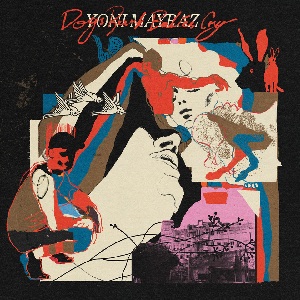 After turning heads with his 2023 debut Dybbuk Tse!, keyboardist and producer Yoni Mayraz is back with a new record titled Dogs Bark Babies Cry, out today through PPK Records (run by Pino Palladino & David Passick). Recorded live at at the legendary Konk Studios in North London, it’s a rich and rhythm-heavy listen that brings together 90s hip-hop, jazz-funk, Middle Eastern influences, and electronic textures in surprising and exciting ways.
After turning heads with his 2023 debut Dybbuk Tse!, keyboardist and producer Yoni Mayraz is back with a new record titled Dogs Bark Babies Cry, out today through PPK Records (run by Pino Palladino & David Passick). Recorded live at at the legendary Konk Studios in North London, it’s a rich and rhythm-heavy listen that brings together 90s hip-hop, jazz-funk, Middle Eastern influences, and electronic textures in surprising and exciting ways.
Mayraz describes the title as “the moment when a commotion takes place. Dogs start barking, babies cry. It’s an ominous sound, yet a natural one. One that can be heard from afar.” That sense of movement and tension runs through the whole album.
To bring Dogs Bark Babies Cry to life, Mayraz enlisted longtime collaborators Tom Driessler (bass) and Zoe Pascal (drums), plus an excellent lineup of guests including Fly Anakin, Tenderlonious, Miriam Adefris, and JSPHYNX. Each track feels alive, shifting between moods but always rooted in strong grooves and sharp ideas. “It’s full of feeling,” Mayraz says. “The whole album is an exploration of internal tension — fears and desires, beauty and decay.”
To get a taste of what’s on offer, check out the album track ‘Ice Cold” featuring Fly Anakin, offered alongside a claymation video by Callum Scott-Dyson.



